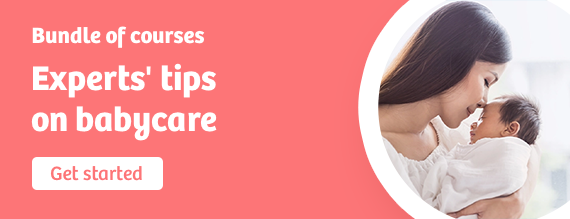Caring for your newborn umbilical cord stump
During pregnancy, the umbilical cord supplies nutrients and oxygen to your developing baby. After birth, the umbilical cord is no longer needed — so it's clamped and snipped. This leaves behind a short stump. In this article I will share medical tips on how to care for your newborn umbilical cord stump and when to seek medical help.


Taking care of the umbilical cord stump
A baby's umbilical cord stump dries out and eventually falls off — usually within one to three weeks after birth. In the meantime, treat the area gently:
- Keep the stump dry. Parents were once instructed to swab the stump with rubbing alcohol after every diaper change. Researchers now say this might kill bacteria that can help the cord dry and separate. Instead, expose the stump to air to help dry out the base. Keep the front of your baby's diaper folded down to avoid covering the stump.
- Stick with sponge baths. While there's no harm in getting the stump wet, sponge baths might make it easier to keep the stump dry.
- Let the stump fall off on its own. Resist the temptation to pull off the stump yourself.
Signs of a problem
During the healing process, it's typical to see a little blood near the stump. Much like a scab, the cord stump might bleed a little when it falls off.
Contact your baby's health care provider if:
- The umbilical area oozes pus.
- The surrounding skin becomes red and swollen.
- The area develops a pink moist bump.
These could be signs of an umbilical cord infection. Prompt treatment is needed to stop the infection from spreading.
Also, talk to your baby's health care provider if the stump still hasn't separated after three weeks. This might be a sign of an underlying problem, such as an infection or immune system disorder.
Check out Covid and babies: All your questions answered






